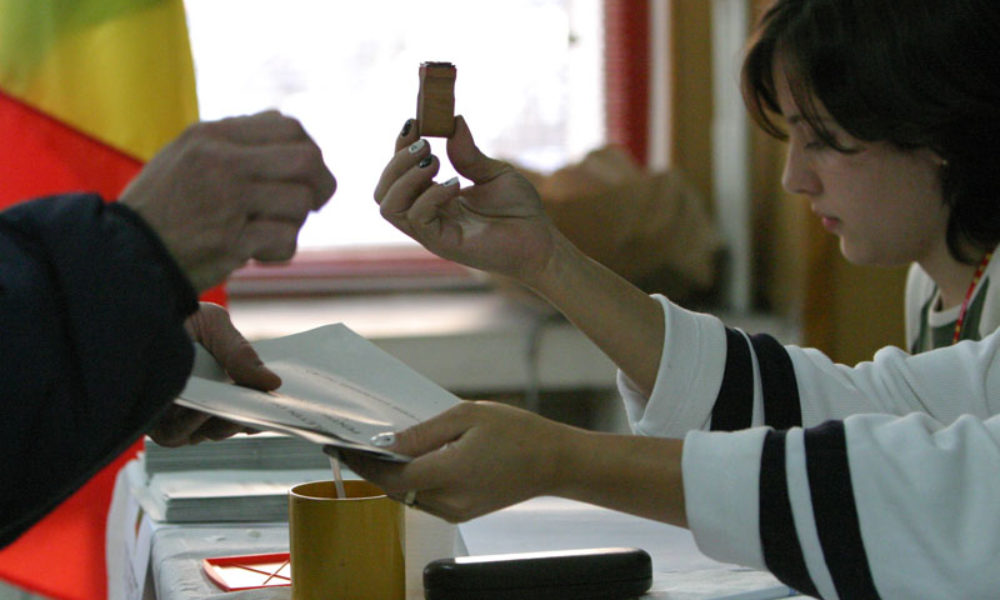Portuguese voters are despondent after all the scandals. ‘This country shows how quickly democratic trust crumbles such as administration, justice and political culture’ failed ‘
/s3/static.nrc.nl/images/gn4/stripped/data132339052-a26240.jpg|https://images.nrc.nl/X0hBzbEIHhCULsyFrHJXC7agnDk=/1920x/filters:no_upscale()/s3/static.nrc.nl/images/gn4/stripped/data132339052-a26240.jpg|https://images.nrc.nl/-XXJuciUP2p4kZh5WEbiem4LCEU=/5760x/filters:no_upscale()/s3/static.nrc.nl/images/gn4/stripped/data132339052-a26240.jpg)
This time it was the Minister of Foreign Affairs, Paulo Rangel. He bought a luxury apartment in the Beato Quarter district in Lisbon this week for 580,000 euros. Nevertheless, the Tax Authorities only lit the property for 174,980 euros – 30 percent of the purchase price. The result: Rangel pays considerably less real estate tax. It is legally correct, but the affair, widely measured in the media, felt the umpteenth case of political self -service for the population. « Isto É O Adn do Portugal« , It sounds bitter – this is just the DNA of Portugal.
On Sunday the Portuguese will go to the polls again, for the third time in three years. After years of scandal on scandal, political despondency seems complete. The turnout threatens to become historically low. Every election seems more of the same.
The center -right minority government of Luís Montenegro lasted less than a year. He lost the confidence of parliament after reports about a conflict of interest: his family business, consultancy firm Spinumviva, is said to have dragged into government assignments while he was prime minister.
In November 2023, socialist Prime Minister António Costa resigned due to a corruption study on permits for lithium extraction and a water -dust factory, in which friendly companies were favored. There is no direct evidence for involvement.
Photo Bruno Colaço
Corruption index
The series of scandals has taken deep marks in Portuguese society. From research by the European Commission It appears that 93 percent of Portuguese see corruption as a serious problem. Two thirds think it has become worse in the last three years. In addition, Portugal noted his worst score ever The Corruption Perceptions Index From Transparency International: 57 points, place 43 of 180 countries-lower than the United Arab Emirates (place 23) and Saudi Arabia (38), but again higher than Spain (46), Italy (52) and Poland (53). « What we see is a political system that has been characterized for years by weak leaders, party structures that shut themselves off from innovation and citizens who are therefore turning away from politics, » says Jorge Máximo. He is a board member of Transparência Internacional Portugal, former alderman in Lisbon, and he participated in the report ‘Caderno de Encargos Para As legislativas 2025’, with recommendations to restore political trust.
Why do the Portuguese have so little faith in politics?
« In the past it was an honor to work in the public sector and the best people were willing to commit themselves to politics. Today that prestige has disappeared. Young people do not feel addressed, parties are outdated and focused internally. Moreover, populist parties use distrust as fuel. All this has led to a climate in which people say: » Apathy and cynicism.
« In addition, there is a constant stream of political scandals, such as conflicts of interest and favoritism, which are widely measured in the media and social media. This reinforces public perception that corruption is widespread, even if not all accusations are legally proven. »
So the image of a lot of corruption is not true with reality?
« The perception of corruption in Portugal is extremely high, but that image is often misleading. Political scandals get enormous media attention, while many things last for years without ever following a definitive statement. Often there is no evidence for suspicions. Take, for example, former prime minister António Costa, but he was never-beaten. So overwhelming that he was no longer sustainable in that position.
There are many laws against corruption. Why doesn’t that work?
“On paper, Portugal belongs to the countries with the most extensive anti-corruption legislation in Europe. But laws are not enough. The problem is the execution. Control authorities are weak and underbemand. The legal system is slow and bureaucratic, which means that corruption cases sometimes last for decades. This also made a lot of suspects, what the perception of, for example. Chairman of the European Council. As a reward, it is not to be used in Portugal, especially if it concerns lobby legislation and conflicts of interest.
Why not?
« Political parties sometimes see stricter rules as a threat to their own dominant position and interests. An example is the almost completed lobby legislation in 2022, which was not further processed by the fall of Costa’s government. That law had to lead to the introduction of a public lobby register, plus a ‘Rastro legislativo‘(legislative process) to show which lobby groups influence legislation. Also became a ‘período de quarentena« Proped: a waiting time for politicians who switch to companies that they used to serve. »
What lessons can other countries learn from Portugal and vice versa?
« This country shows how quickly democratic trust crumbles as governance, justice and political culture failure. Other countries learn that laws are not enough without effective implementation. Portugal can in turn learn from countries where coalitions and political stability are built despite differences, such as the coalition alloys that the Netherlands has or Italy is sometimes set for prime prime minier) Draghi. Reforms – Something that is missing in Portugal. «
What steps should Portugal take to restore trust?
“We have to reform the electoral system so that citizens can choose their local representatives directly. That makes politicians more approachable. People currently only vote for parties, which means that politicians are primarily loyal to their party leadership and less to the citizens. In addition, rules on lobbying, conflicts of interest and slow judgment are finally forced. Dare to work together, look beyond their own party and look for real solutions for the long term, instead of just election talks. ”
Do you expect the position of Portugal on the index to fall even further without action?
« Without reforms, Portugal will remain trapped in a vicious circle of scandals, political paralysis and populism. Portugal must now choose: reform and restore trust, or further sink into apathy and cynicism. »

/s3/static.nrc.nl/images/gn4/stripped/data132344549-11e7fb.jpg|https://images.nrc.nl/UYvFpqcwpMIQaGx9gZfuIuEmCWQ=/1920x/filters:no_upscale()/s3/static.nrc.nl/images/gn4/stripped/data132344549-11e7fb.jpg|https://images.nrc.nl/sR6aX7H9TvDAyPyxliNKPa8Xynw=/5760x/filters:no_upscale()/s3/static.nrc.nl/images/gn4/stripped/data132344549-11e7fb.jpg)
:format(webp)/s3/static.nrc.nl/wp-content/uploads/2025/04/10201114/data130689998-abb630.jpg)
:format(webp)/s3/static.nrc.nl/bvhw/files/2018/11/data38418998-b4fc9b.jpg)



